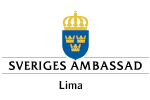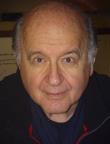![]() Neasa MacErlean
Neasa MacErlean
Sunday 15 March 2009 The Bank of England can go in for quantitative easing and cut interest rates all it likes, but such a monetary approach will do very little to ease the current crisis. This is the view of Hernando de Soto, the Peruvian economist whose work with the poor has pushed him into the frame for a Nobel prize.
"Your authorities have a very clear idea what to do with money," he says from his office in Lima. "But I am not so sure they know how to handle credit." Since the current problems are really about credit, in his view we are largely barking up the wrong tree. Figures are produced to support this. As far as he can establish, there is about $13 trillion of actual notes and coins in the world; about $170tn of traditional credit such as bonds and equity; and upwards of $600tn (but maybe as much as $1 quadrillion) of derivatives. Since he believes that the current difficulties are caused mainly by the derivatives market, he does not believe they will be resolved by opening or closing monetary valves.
Now 67 and head of the Institute for Liberty and Democracy thinktank in Peru, he was born in the country but his parents moved to Switzerland when he was a child and it was 38 years before he returned to live in Peru. So he is unusual in coming from both the first and third worlds. Former President Bill Clinton called him "the world's greatest living economist", and other admirers include George W Bush, Vladimir Putin and Hamid Karzai. Last December the UN adopted a report it had commissioned from de Soto and Madeleine Albright, former US secretary of state, through a body they had chaired together, the Commission on Legal Empowerment of the Poor. In May they will meet UN secretary general Ban Ki-moon. If all goes as expected, de Soto will be helping to run projects in 40 African nations within five years, implementing blueprints he has developed to start creating prosperity.
As a specialist on the economies of poor states, de Soto did not expect to see the UK and US suddenly meeting some of his definitions of poverty, but says: "All of a sudden you have become a banana republic." What had made capitalism so strong for centuries in parts of Europe and North America was how capital - from physical property to shares - was clearly registered and recorded. What dramatically undermined capitalism since about 2000 was the growth of unregistered assets - derivatives. Now that those have turned toxic, as the loans attached to them have been defaulted on or have come to be regarded as worthless or significantly devalued, we do not even know how big the problem is. We do not know where it is either - mainly because the banks have been reluctant to reveal the truth.
Many of the derivatives that have caused the crisis are bearer bonds, and there is no worldwide register of them. De Soto is used to living in a country which is about 60 per cent a hidden - or shadow - economy; the black market accounts for most trade and most people have no title to their home. His work is about empowering people by recording their entitlement to certain assets (most obviously their homes), thereby, enabling them to borrow, trade, receive letters and conduct other basic commercial transactions through those assets.
The UK and the US have become shadow economies - albeit by a different route - through the toxic asset crisis. Both have now started detoxification programmes, but in a rather wobbly fashion. The Royal Bank of Scotland and Lloyds have signed up to the government's asset protection scheme and other banks have until the end of this month to follow suit. It is only when all banks with significant problems sign up, make honest declarations and the toxic assets are taken off the books that they will start lending normally to each other and businesses once more, says de Soto.
"You will end up there," he says. "But it's very frustrating to see this from the outside. The whole source of the debacle is the US and the UK. And it is tough to watch you not getting to the centre of the issue. There is an intellectual lag. But this is a problem that can't be dealt with in terms of traditional monetary policy."
Detoxification is a process we have more experience of than we realise. When East and West Germany reunited in 1990, the East German currency had to be detoxified and de Soto believes that the work of the 300 or so experts involved in that programme would provide useful insights now.
But once detoxification happens, results could be seen quickly: "This [the detoxification process] is something that could be done in two or three months. It will be a painful exercise but, once you have found a way to take the detoxification out of the system, you are going to be able to free up credit."
The work he plans to do in Africa will be similar to the work he thinks the US and UK must do now - pulling trade and assets out of the shadow economy, setting up registers and focusing on transparency. But de Soto never expected that he would be giving the same advice to London and Washington as he would be giving to Africa.


